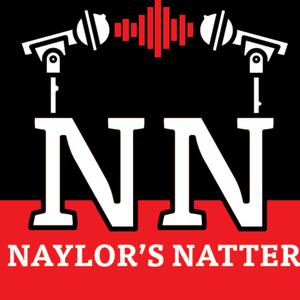
Naylor's Natter Podcast
Phil Naylor
"Naylor's natter...just talking to teachers" Naylor's Natter is the brainchild of Phil Naylor , created initially to share musings on evidence, research and CPD. The podcast has grown significantly since its first episode in early 2019 and is now proudly supported by both the Teacher Development Trust and John Catt Educational Publishing. As the podcast has evolved so has its reach, we feel passionately about diversity of opinion and representation of our profession. To ensure we better reflect teaching , we are now proud to add more hosts to the podcast. Opinions are guests and hosts alone.
- 58 minutes 25 secondsEquity in education: Levelling the playing field of learning with Lee Elliot Major
quity in Education sets out a new equity-based approach in education to help teachers improve the prospects of under-resourced and working-class pupils.
The equity approach recognises that we must address our own cultural biases and barriers within the classroom, while helping to remove extra barriers to learning experienced by children outside schools. Based on thousands of research studies and years of working with expert teachers, the book sets out the principles and practical strategies for trainee teachers, teachers and teacher leaders.
Adopting an equity mindset involves four key principles:
· equity not equality - doing more to overcome the extra barriers some learners experience
· capacity not deficit thinking - recognising the talents in all pupils
· deep not shallow relationships - developing authentic individual relationships with pupils
· multiple not singular talents - acknowledging that human talents come in many forms.
Equity in Education also advocates the national policies that would enable teachers to prioritise an equitable approach and reduce divides between the education haves and have-nots.4 December 2023, 5:00 am - 57 minutes 33 secondsWhat Do New Teachers Need to Know?: A conversation with Peter Foster
Apologies for the Microphone issues here! I made a mistake and selected the wrong microphone . Hopefully Pete's quality shines through.
What knowledge will make you most effective as a teacher? New teachers are often bombarded with information about the concepts they should understand and the topics they should master. This indispensable bookwill help you navigate the research on curriculum, cognitive science, student data and more, providing clarity and key takeaways for those looking to grow their teaching expertise.
What Do New Teachers Need to Know? explores the fundamentals of teacher expertise and draws upon contemporary research to offer the knowledge that will be most useful, the methods to retain that knowledge, and the ways expert teachers use it to solve problems. Written by an educator with extensive experience and understanding, each chapter answers a key question about teacher knowledge, including:
• Does anyone agree on what makes great teaching?
• How should I use evidence in my planning?
• Why isn’t subject knowledge enough?
• What should I know about my students?
• How do experts make and break habits?
• How can teachers think creatively whilst automating good habits?
• What do we need to know about the curriculum?
• How should Cognitive Load Theory affect our pedagogical decisions?
Packed with case studies and interviews with new and training teachers alongside key takeaways for the classroom, this book is essential reading for early career teachers, those undertaking initial teacher training and current teachers looking to develop their expertise.
6 November 2023, 1:50 am - 49 minutes 36 secondsWarm, welcoming and Friendly with Barry Smith
From Barry's LinkedIn
Founding Deputy of Michaela School, Wembley. The kids’ amazing French, & my unique approach to MFL teaching, created huge buzz at Michaela. Became head of Great Yarmouth Charter. 10th head in 10 years. Inadequate for a decade. 60+ % fsm coastal comp. In 5 months, Ofsted declared Charter, ‘a miraculous turnaround’. Maths & English 5+ doubled in a year. P8 from - 0.57 to + 0.14. Visitors from across UK and beyond visited & talked of ‘joy’, ‘relationships’, ‘warmth’. CST as Regional Director. Led turn around of inadequate Hackney New School working with 5th Head in 5 years.
25 years teaching. A decade as a freelance teacher trainer fighting fashionable fads 2004 to 2014. Then founded Michaela, transformed Charter & turned around Hackney.
Sept 21 to date, freelance again. MFL CPD. It’s what I became famous for. With commendations from the likes of Christine Counsell & Tom Bennett. But mostly working with headteachers. Culture, behaviour, courtesy, teaching & learning, systems.
Very practical, hands on, jargon free. Holistic take on whole school improvement working hand in hand with the head. Helping head realise their vision.
Attention to detail, coaching, systems. Rapid and radical change or incremental.
Bringing best bits of experience from 25 years in education, a decade training & coaching, setting up & leading the legendary Michaela School, turning around two inadequate comps to now, working with heads across the country.
Creating genuine mutual respect school cultures; coaching heads; developing SLT; transforming norms.
Try my podcast on Spotify, Barry Smith Education. DM me on twitter, BarryNSmith79. Happy to chat. Practical. Genuinely transformative. Jargon free.23 October 2023, 12:47 am - 48 minutes 46 secondsTime to Think with Rachel Johnson
Being a leader is a wonderful privilege but can also come with challenges we don't always feel prepared for. How often do we tie ourselves in knots wondering about the right way to deal with a difficult situation at work? Or wondering why no one ever told us how to manage some of the challenges? This book is for people who need practical ways of tackling the tricky issues in leadership to move forward courageously. From people pleasing to crucial conversations, we look at ten areas that can cause us to be 'stuck' and how we can get ourselves free. Dip into this book when you need some support to inspire, motivate, and equip you in whatever stage of leadership you're at so that you can lead more confidently and freely, and be your best more of the time.
16 October 2023, 12:02 am - 54 minutes 21 secondsThe Power of Teams with Sam CromeIn education, resources and time are scarce, yet the demand for performance is sky high. School leaders invest money and labour into improving their schools, navigating trade offs along the way. But what if one of the biggest improvements we could make to our schools was something we already do? What if enhancing teamwork so that school teams thrive, was actually the secret ingredient to success?The Power of Teams explores evidence from across sectors, including education, to find out what high-performing teams share, and how we can adapt the most effective teamwork strategies to the unique environment of a school. The book outlines a model of teamwork factors that contribute to truly thriving teams, with theory, research, tangible actions for school teams, and a range of expert voices who contribute their experience in case studies.Effective teamwork leads to purpose, belonging, trust, learning, and, ultimately, high performance. When we better understand the nuances of how teams can thrive, we discover the real Power of Teams.17 September 2023, 6:07 am
- 46 minutes 8 secondsBuilding Culture with Lekha Sharma
Building Culture navigates the complex educational landscape and provides a look at school culture, highlighting key aspects of cultivating culture that leads to great pupil outcomes.
Rooted in her own experience as a senior leader, Lekha Sharma knows that leaders need not only the what of curriculum, assessment and pedagogy but also the how. How can school leaders bring together the theoretical knowledge they possess and mobilise it on the ground so that they can have a positive and tangible impact on pupil outcomes? Teachers are increasingly equipped with the awareness and knowledge of cognitive psychology but what other areas of psychology could support those that lead those very teachers? And what elements of human nature can we harness to build the kind of school cultures that are conducive to improving outcomes for pupils? Building Culture provides a great start to answering all those questions.4 September 2023, 12:00 am - 1 hour 6 minutesChanging Perceptions with Graham Chatterley
Written by Graham Chatterley, Changing Perceptions: Deciphering the language of behaviour provides everyone working with children a better understanding of the causes of challenging behaviour and what motivates it.
This timely book moves the dial on the perception of challenging behaviour in schools. De-escalation is important but it is only part of the process: if we really want to change behaviour, we have to understand it.
The causes of poor behaviour are many and varied: fear, stress, anxiety and the feeling of being overwhelmed can all take their toll. Changing Perceptions examines the motives behind challenging behaviour and the consequences that come with it, detailing ways in which these situations can be managed calmly and consistently. Better understanding and empathy can make children feel safer, build their trust, develop belonging and consequently create more effective learners in the classroom.
Empathy is the master key to unlocking the most challenging pupils. When we consistently respond to children with empathy and compassion, we don’t just put a sticking plaster over a problem, we change their experiences: how they feel and how they behave long term. Importantly, this approach also greatly improves staff wellbeing by increasing understanding of challenging behaviour and how it is perceived.
In this book, Graham sets out why it is so important to teach behaviour and provides practical ways to deal with the most challenging situations in the classroom and stop the conflict spiral. He also covers the importance of validating feelings, building self-esteem, improving emotional resilience, raising expectations, fostering positive values and much more.
Essential reading for teachers, school leaders and everyone working with challenging behaviour.
Contents include:
- Introduction
- Chapter 1: Relationships
- Chapter 2: How we respond
- Chapter 3: The origins of behaviour
- Chapter 4: Short-term survival responses
- Chapter 5: What is the behaviour communicating?
- Chapter 6: The five responses to threat
- Chapter 7: Prevention is better than cure
- Chapter 8: Consequences
- Chapter 9: Long-term survival
- Chapter 10: Shielding from shame
- Chapter 11: Not school ready
- Chapter 12: Overwhelm
- Chapter 13: Lifting them up
- Chapter 14: Linking self-esteem and additional needs
- Chapter 15: My autism journey
- Chapter 16: Emotional resilience
- Chapter 11: The power of trauma
- Chapter 12: Behind the mask
- Chapter 13: Expectations and values
- Chapter 14: Enforcing external control versus teaching self-control
- Chapter 15: Less is sometimes more
- Conclusion
14 August 2023, 12:16 am - 53 minutes 53 secondsTeach from Your Best Self with Jay SchroderTeachers, this book is a guide for taking care of education’s most valuable resource: you. Author Jay Schroder, founder of the popular Teach from Your Best Self Institute, demonstrates why the version of ourselves that we bring to teaching matters and describes how we can rejuvenate ourselves while maximizing student learning. Part I explains why the self that a teacher brings to the classroom is important. Part II explores skills that will help us sustain a best-self state in all manner of situations. Part III delves into those moments when we’re provoked beyond our limits and our "hurtspots" come sharply into view. It offers ways to avert a reactive state or recover from it. Lastly, Part IV provides simple approaches for building a more durable, best self for the long term―a best self with deepened capacity to respond rather than react in the pressurized conditions of teaching. With fresh ideas presented throughout, you’ll learn how to prioritize your own well-being so you can continue to make a difference for your students. https://www.amazon.co.uk/Teach-Your-Best-Self-Classroom/dp/1032416874/ref=sr_1_1?crid=2XRBL87X70HXH&keywords=teach+from+your+best+self&qid=1691233277&sprefix=teach+from+your+best+self%2Caps%2C78&sr=8-1 Phil's book: https://www.amazon.co.uk/Naylors-Natter-collective-teachers-education/dp/1472992466/ref=sr_1_1?crid=1MG7NPVEZI3SJ&keywords=naylors+matter&qid=1691233966&sprefix=Naylor%2Caps%2C103&sr=8-15 August 2023, 11:14 am
- 53 minutes 12 secondsRethinking School Inspection- Is there a better way? With Tracey O'Brien
This timely book examines what a meaningful school accountability system could look like in England. The book starts with a deep dive into our current inspection model, discussing some of the current pressures within the system, and comparing our inspection approach to that of other countries and sectors. It moves on to show how Ofsted and school inspections are perceived and portrayed - using first-hand accounts, academic papers, government publications, and media reports - and pulls together some of the current thinking on how the model could be improved. The author ends with her own proposals for a more meaningful and humane school accountability system. She suggests we rethink what we do, and how we do it, with a call for wide-ranging consultation leading to evidence-informed reform of the school inspection process.
24 July 2023, 12:00 am - 54 minutes 24 secondsHow to prepare for OFSTED with Dominic SallesOfsted are coming. You've read the new Framework, heard the horror stories, seen some busted myths which, frankly, you don't believe, and you want to know this: How do I stop my school getting less than a 'good' judgement? How can I prepare for the inspection, so the team see my school in the best light? How can we control the inspection team, so they see what we want them to see, and understand it through our eyes? Is it possible for two teams to see the exact same lessons, teachers and students, and come to different judgements? Yes, absolutely. So, find out how to control the game, and get the judgement your school deserves.4 July 2023, 4:00 am
- 58 minutes 16 secondsTeaching and Learning Illuminated- The Big Ideas Illustrated with Bradley Busch
This exciting new book from the bestselling authors of The Science of Learning takes complex ideas around teaching and learning and makes them easy to understand and apply through beautifully illustrated graphics. Each concept is covered over a double-page spread, with a full-page graphic on one page and supportive text on the other. This unique combination of accessible images and clear explanations helps teachers navigate the key principles and understand how to best implement them in the classroom.
Distilling key findings and ideas for great evidence-based teaching from a broad range of contemporary studies, the book covers the research findings, ideas and applications from the most important and fundamental areas of teaching and learning including:
- Retrieval Practice
- Spacing
- Interleaving
- Cognitive Load Theory
- Rosenshine’s Principles
- Feedback
- Resilience
- Metacognition
Written to support, inspire and inform teaching staff and those involved in leadership and CPD, Teaching & Learning Illuminated will transform readers' understanding of teaching and learning research.
12 June 2023, 4:30 am - More Episodes? Get the App
- www.naylorsnatter.co.uk
- en-gb
Your feedback is valuable to us. Should you encounter any bugs, glitches, lack of functionality or other problems, please email us on [email protected] or join Moon.FM Telegram Group where you can talk directly to the dev team who are happy to answer any queries.
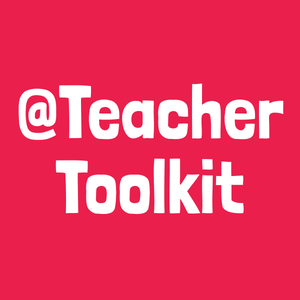 Podcasts – TeacherToolkit
Podcasts – TeacherToolkit
 Are You Convinced?
Are You Convinced?
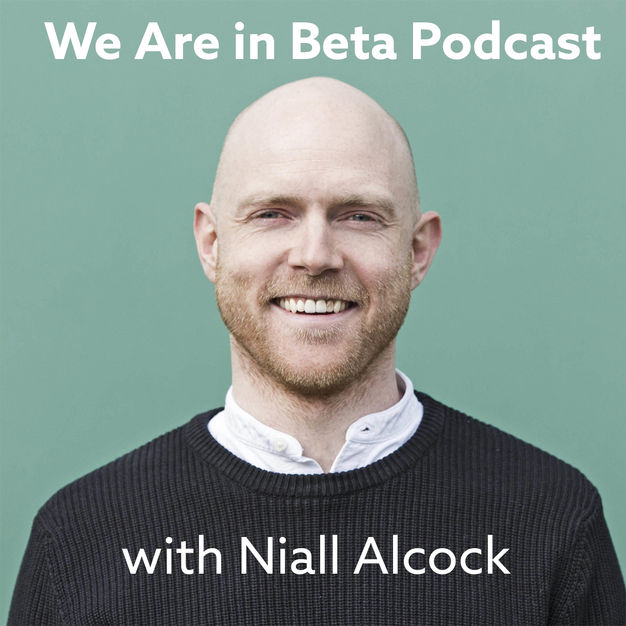 We Are In Beta Podcast
We Are In Beta Podcast
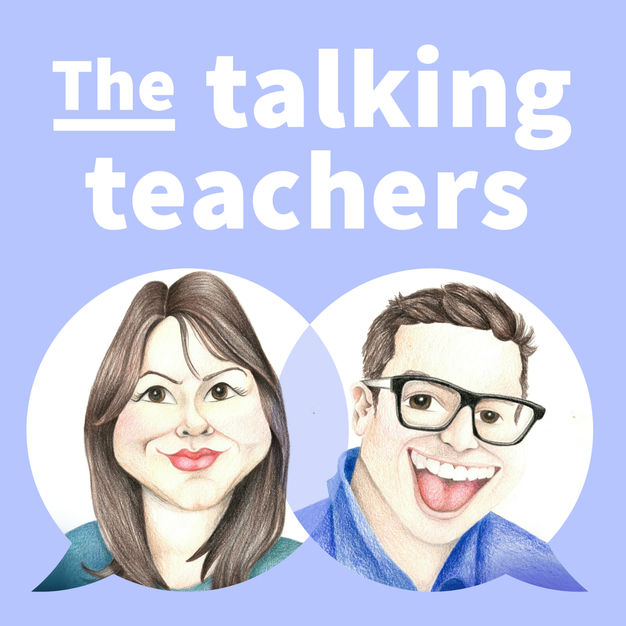 The talking teachers Podcast
The talking teachers Podcast
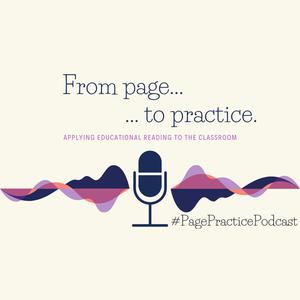 From page to practice
From page to practice